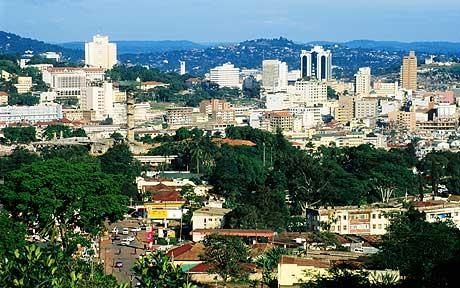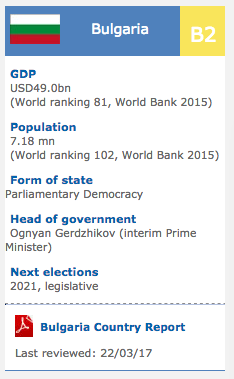Uganda: Kampala City
2012/12/19

Kampala is the largest city and capital of Uganda. The city is divided into five boroughs that oversee local planning: Kampala Central Division, Kawempe Division, Makindye Division, Nakawa Division and Lubaga Division. The city is coterminous with Kampala District.
In 2001, the city limits were substantially expanded to include many of the surrounding communities within the city; including: Namirembe, Naakulabye, Kasubi, Bwaise, Kawempe, Kikaaya, Mpererwe, Lubaga, Nateete, Busega, Mutundwe, Ndeeba, Katwe, Kibuli, Kabalagala, Ntinda, Kiwaatule, Kisaasi; Najjanankumbi; Nakawa, Kyambogo, Nagulu, Bugoloobi, Mbuya, Luzira, Port Bell and Butabika.
The eastern and northeastern suburbs of Banda, Kireka, Bweyogerere, Namanve Kirinnya, Namugongo, Kyaliwajjala, Bulindo and Nsasa, among others, were carved out into a separate municipality called Kira Municipality. Today, Kira Municipality is the second largest town in Uganda with an estimated population of about 180,000 in 2011.
Other features of the city include the Uganda Museum, Ugandan National Theatre, Nakasero Market and St. Balikuddembe Market (formerly Owino Market). Kampala is also known for its nightlife, which includes several casinos, notably Casino Simba in the Garden City shopping center, Kampala Casino and Mayfair Casino. Entebbe International Airport is located at Entebbe, 22 miles (35 km) away, while Port Bell on the shores of Lake Victoria is 10 kilometres (6.2 mi) away.
Kampala hosts one of only seven Bahá'í houses of worship in the world. It is known as the Mother Temple of Africa and is situated on Kikaya Hill on the outskirts of the city. Its foundation stone was laid in January, 1958; it was dedicated on January 13, 1961. See Bahá'í Faith in Uganda.
The Ahmadiyya Central Mosque in Kampala is the central mosque of the Ahmadiyya Muslim Community, which has six minarets and can hold up to 9,000 worshippers.
Kampala going westwards has Kabaka's Lubiri, the palace of the king of Buganda. Buganda is one of the oldest kingdoms in Africa, dating back to the late 13th century. Other landmarks include the Kasubi tombs, the magnificent mosque at old Kampala, Namirembe and Rubaga Cathedral, at the very edge there is Kasumba Square Mall at the intersection of Northern Bypass and Busega roundabout.
- Related Articles

Africa's Relationship With China Is Ancient History
2017/07/02 In 2002 South Africa's Parliament unveiled a digital reproduction of a map - of China, the Middle East and Africa - that some speculated could be the initial map of the African continent. The Da Ming Hun Yi Tu - the Comprehensive Map of the Great Ming Empire - was drawn up around 1389 during the Ming Dynasty, according to historian Hyunhee Park.
Africa: Making Things Happen at the Bank - 'Not a Talk Shop' - Akin Adesina
2017/07/02 Dr. Akinwumi Adesina is focusing on five areas to achieve the African and world goals for a prosperous continent since becoming president of the African Development Bank - Africa's major public financial institution in September 2015. He was a keynote speaker at this month's Corporate Council on Africa's U.S.- Africa Business Summit in Washington D.C. and moderated a lively panel with five African government ministers. He as well received the Gene White Lifetime Succcess Award from the World Child Nutrition Foundation. This week, he was named the 2017 recipient of the World Food Prize, a prestigious honor that includes a $250,000 award. In an interview in Washington, DC, Adesina discussed the Development Bank's ambitious schedule and his vision for attracting the increase capital Africa needs. Posting questions for AllAfrica was Noluthando Crockett-Ntonga.
Climate change laws around the world
2017/05/14 There has been a 20-fold increase in the number of global climate change laws since 1997, according to the most comprehensive database of relevant policy and legislation. The database, produced by the Grantham Research Institute on Climate Change and the Environment and the Sabin Center on Climate Change Law, includes more than 1,200 relevant policies across 164 countries, which account for 95% of global greenhouse gas emissions.
Africa’s 20 most attractive countries for investors
2016/05/16 Despite its economy slowing down, South Africa remains Africa’s most attractive country for investors, according to the 2016 Ernst & Young Africa Attractiveness Index. The statement evaluates evolution made in governance, diversification, infrastructures, business enablement, human development inclunding resilience to current macroeconomic challenges. Morocco is ranked second on the index, followed by Egypt, Kenya, Mauritius, Ghana Botswana, Tunisia and Rwanda. Cote d’Ivoire comes tenth. Africa’s top economy, Nigeria comes 15th, mainly because of its poor performances in terms of governance and human improvment(See full ranking below).
Ugandan Tourism “One of the best places anybody can both visit and invest in”
2015/12/02 Spectacular wildlife, welcoming people, political stability and untouched potential in need of international expertise are part the reason why Jean Byamugisha, Executive Director of the Uganda Hotel Owners Association, invites the world beyond its borders approaching to Uganda for a incomparable, personal, and truly African experience. Considered one of the safest nations in Africa, Uganda has become an attractive place for investors and businessmen. What are the key strengths of Uganda’s success over the completed few years?
- Uganda News
-
- BOTSWANA: Africa: USA-Africa - No Policy? Bad Policy? or Both?
- BOTSWANA: Africa: U.S. State Department To Get Experienced Diplomat in Key Africa Post
- UGANDA: Ugandan Govt Starts Verifying International Academy Teachers
- BOTSWANA: Africa’s economic growth in 2016 was driven by East Africa
- BOTSWANA: Africa property offers rich pickings for the brave
- BOTSWANA: Bill Gates sees US likely to maintain aid levels for Africa
- Trending Articles
-
- HUNGARY: Putin, Hungarian PM discuss new nuclear power plant
- CHINA: Xi Jinping opens BRICS Summit in Xiamen, asks members to shelve differences
- CHINA: Xiamen BRICS summit in China
- CHINA: The Mixed Fortunes of the BRICS Countries, in 5 Facts
- CHINA: BRICS Must Trust Diplomacy To Resolve Issues, Says China's Xi Jinping
- BOTSWANA: Africa: U.S. State Department To Get Experienced Diplomat in Key Africa Post










